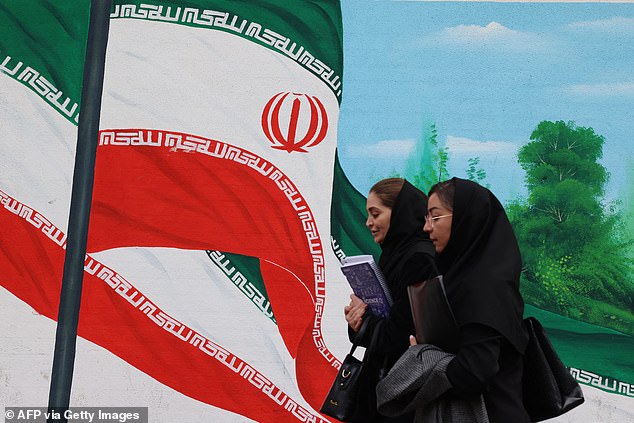Women in Iran could now face the death penalty or years behind bars if they break new moral laws.
The new laws, which were passed by Iran’s hardline parliament earlier this month, have introduced harsh penalties for women in the name of promoting a “culture of chastity and hijab.”
These punishments are for those caught “promoting nudity, indecency, nudity or inappropriate dress” and could see Iranians receive fines of up to £12,500, caning and prison sentences of up to 15 years for repeat offenders.
This includes women who are alleged to promote or propagate indecency, reveal or “poorly dress” to foreign entities, including international media and civil society organizations.
If Iranian authorities discover that the crime has amounted to “corruption on earth,” the accused could be sentenced to death under Article 296 of Iran’s Islamic penal code.
Amnesty International has criticized new laws that say women could be sentenced to death for sending videos of themselves unveiled to media outlets outside the Islamic Republic.
The rights group said the law also appeared to grant immunity to anyone who wanted to fulfill their “religious duty” and impose mandatory headscarves on women.
This comes after women in Iran repeatedly opposed the regime’s draconian morality laws by defiantly removing their veils in public.
Two Iranian women in November. Women in Iran could now face the death penalty or years behind bars if they break new moral laws.
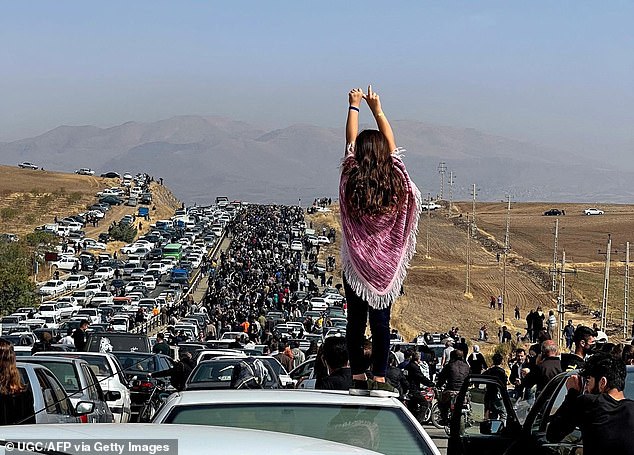
The 2022 protests in Iran showing an unveiled woman standing on top of a car. Amnesty International has criticized new laws that say women could be sentenced to death for sending videos of themselves unveiled to media outlets outside the Islamic Republic.
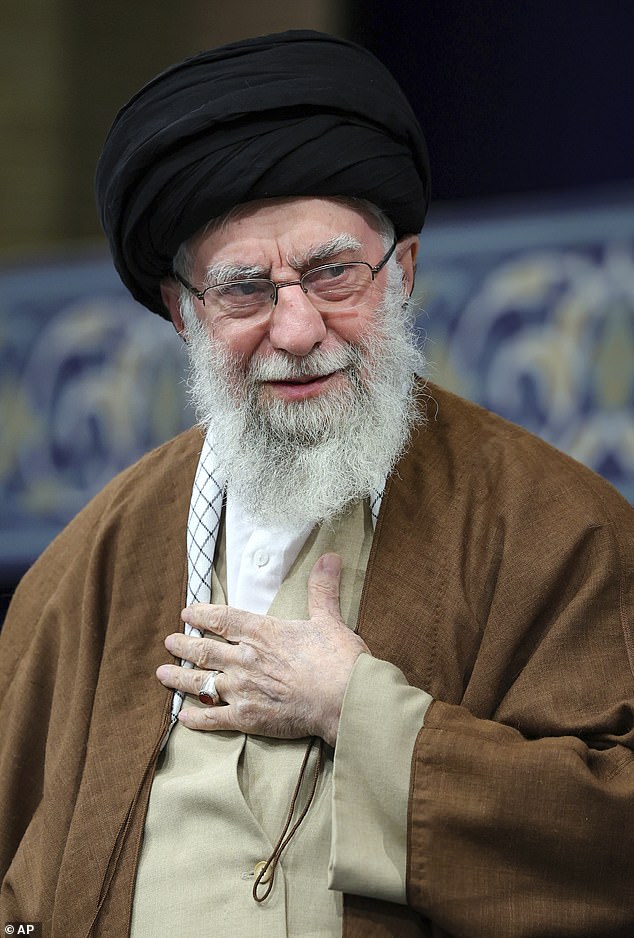
Iran’s Supreme Leader Ayatollah Ali Khamenei. The new laws, which were passed by Iran’s hardline parliament earlier this month, have introduced harsh penalties for women in the name of promoting a “culture of chastity and hijab.”
Companies that do not enforce the laws will also be subject to harsh punishments or sanctions.
Diana Eltahawy, Amnesty’s deputy director for the Middle East, said the guardian: ‘This shameful law intensifies the persecution of women and girls for daring to defend their rights following the Women, Life and Freedom uprising.
“The authorities are trying to entrench the already suffocating system of repression against women and girls, while making their daily lives even more intolerable.”
The new laws also sparked outrage among Iranian activists and journalists.
Iranian human rights lawyers like Saeid Dehghan went so far as to claim that it violates Article 9 of the Iranian constitution, which prohibits legislation that undermines citizens’ freedoms even in the name of national sovereignty.
The law comes two years after protests rocked Iran following the death in custody of 22-year-old Mahsa Amini.
Mahsa was arrested by Iran’s morality police for allegedly not wearing her hijab correctly.
Since the protests, Iranian women have publicly challenged the strict dress code.
Last month, a video of a student in Iran went viral after she stripped to her underwear on the street. This was reportedly in protest of the strict dress code.
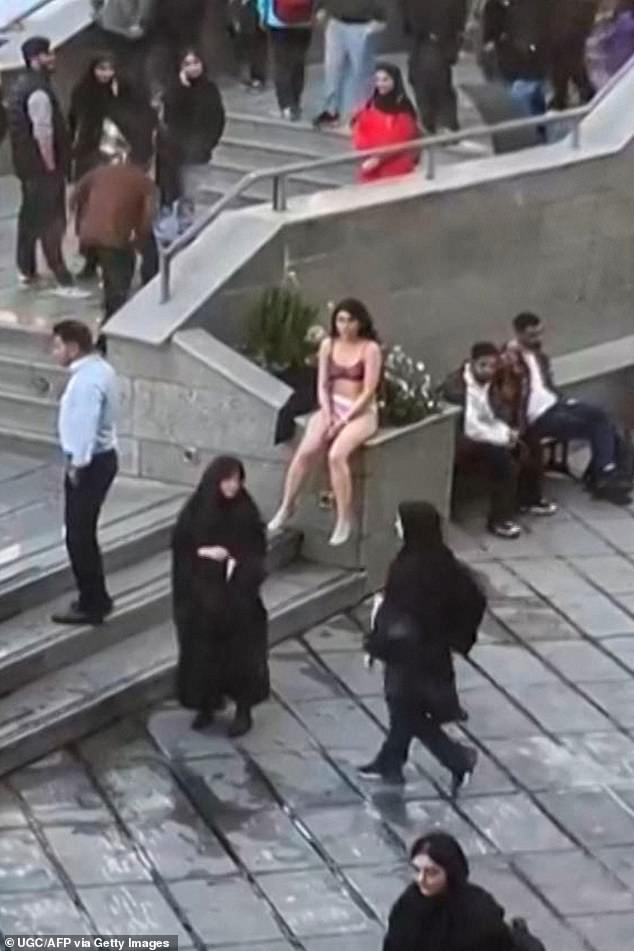
Last month, a video of a student in Iran went viral after she stripped to her underwear on the street. This was reportedly in protest of the strict dress code.
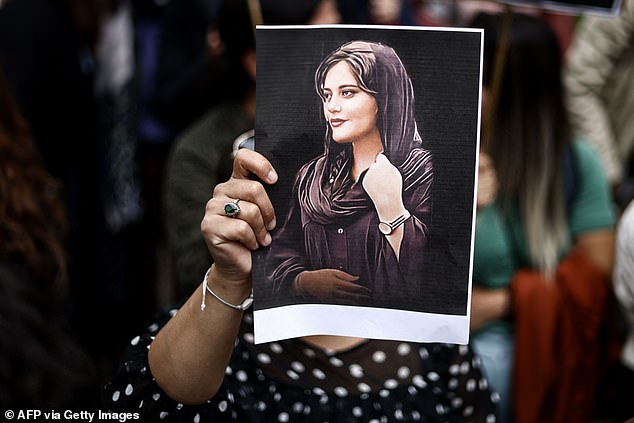
A protester holds a portrait of Mahsa Amini during a demonstration in Brussels. The law comes two years after protests rocked Iran following the death in custody of 22-year-old Mahsa Amini.
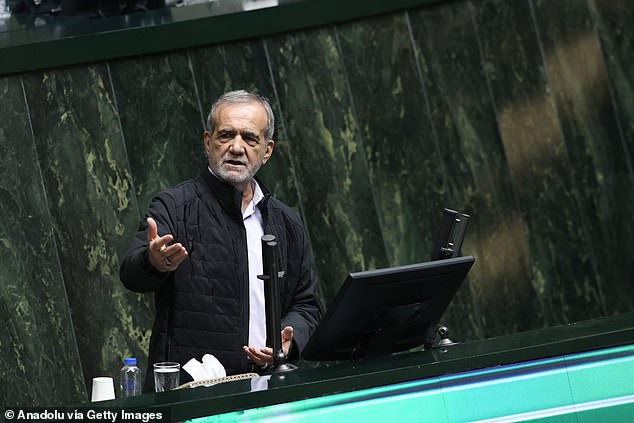
Iran’s reformist president Masoud Pezeshkian (pictured) warned that the legislation would only lead to greater discontent in Iranian society.
Iran’s reformist president, who came to power after the surprise death of his predecessor in a helicopter crash, has expressed his opposition to the new laws.
President Masoud Pezeshkian warned that the legislation would only lead to further discontent in Iranian society.
In words reported by Iran Internationala London-based Iranian media network, Pezeshkian said: “An unjust law will not be applied and, if it is, it will create discontent.”
During her presidential campaign in June’s snap elections, Pezeshkian promised to end hijab patrols and violence against women for violating Islamic dress codes.

